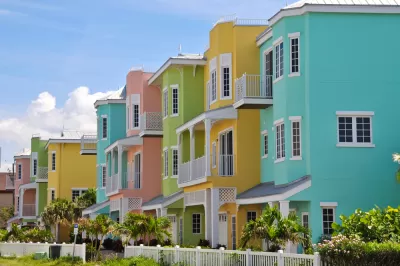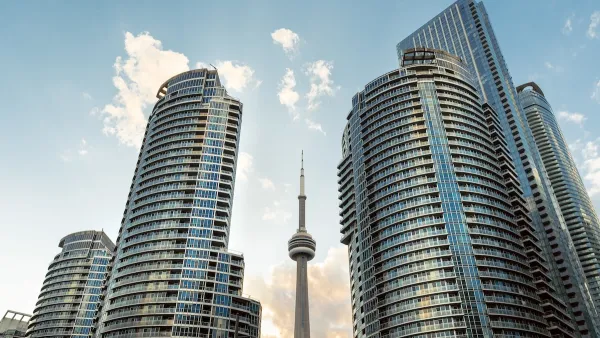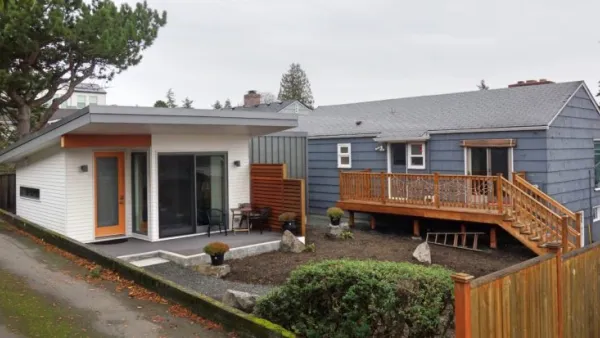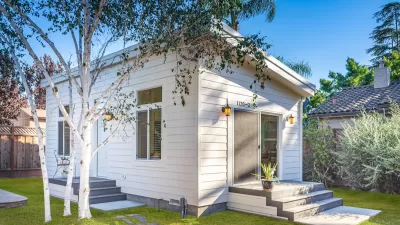An overlooked but important part of American housing stock, many condominium complexes are facing the consequences of decades of deferred maintenance as their buildings and infrastructure reach a critical age.

Carolyn Gallaher assesses the 'mid-life crisis' faced by America's condos, defined by Gallaher as "private residences within a larger property or complex" in which "[r]esidents co-own [shared] elements so they are jointly responsible for their maintenance, repair, and/or replacement."
As many of these units age, they require maintenance that has long been deferred, complicated in part by two important trends. "The first is collective action problems. The second is the financialization of housing."
Problems created by the real estate crash of the 2000s, such as residents' inability to pay fees, foreclosures, and slowing condo sales, continue to have ripple effects today. "In 2016, the Washington Post reported on area condominiums still facing financial difficulties because their reserves had been depleted during the recession."
However, "there are things municipal and state governments can do to prevent condos from falling into disrepair in the first place. Right now, the FHA already requires condominium complexes eligible for FHA mortgages to meet reserve requirements. State and localities could provide incentives for properties to come up to FHA standards." States can also "standardize rules for how complexes within their borders report budget information to prospective buyers. Doing so would make it easier for buyers to compare across properties, and would encourage all properties to meet baseline requirements."
Protecting condos is important, writes Gallaher, because they are "an important part of the American housing stock. They are often more affordable than single-family homes and better suited to people who don’t need or can’t maintain larger homes," contributing to an equitable housing market.
FULL STORY: Are America’s condos having a midlife crisis?

Planetizen Federal Action Tracker
A weekly monitor of how Trump’s orders and actions are impacting planners and planning in America.

Maui's Vacation Rental Debate Turns Ugly
Verbal attacks, misinformation campaigns and fistfights plague a high-stakes debate to convert thousands of vacation rentals into long-term housing.

Restaurant Patios Were a Pandemic Win — Why Were They so Hard to Keep?
Social distancing requirements and changes in travel patterns prompted cities to pilot new uses for street and sidewalk space. Then it got complicated.

In California Battle of Housing vs. Environment, Housing Just Won
A new state law significantly limits the power of CEQA, an environmental review law that served as a powerful tool for blocking new development.

Boulder Eliminates Parking Minimums Citywide
Officials estimate the cost of building a single underground parking space at up to $100,000.

Orange County, Florida Adopts Largest US “Sprawl Repair” Code
The ‘Orange Code’ seeks to rectify decades of sprawl-inducing, car-oriented development.
Urban Design for Planners 1: Software Tools
This six-course series explores essential urban design concepts using open source software and equips planners with the tools they need to participate fully in the urban design process.
Planning for Universal Design
Learn the tools for implementing Universal Design in planning regulations.
Heyer Gruel & Associates PA
JM Goldson LLC
Custer County Colorado
City of Camden Redevelopment Agency
City of Astoria
Transportation Research & Education Center (TREC) at Portland State University
Jefferson Parish Government
Camden Redevelopment Agency
City of Claremont





























